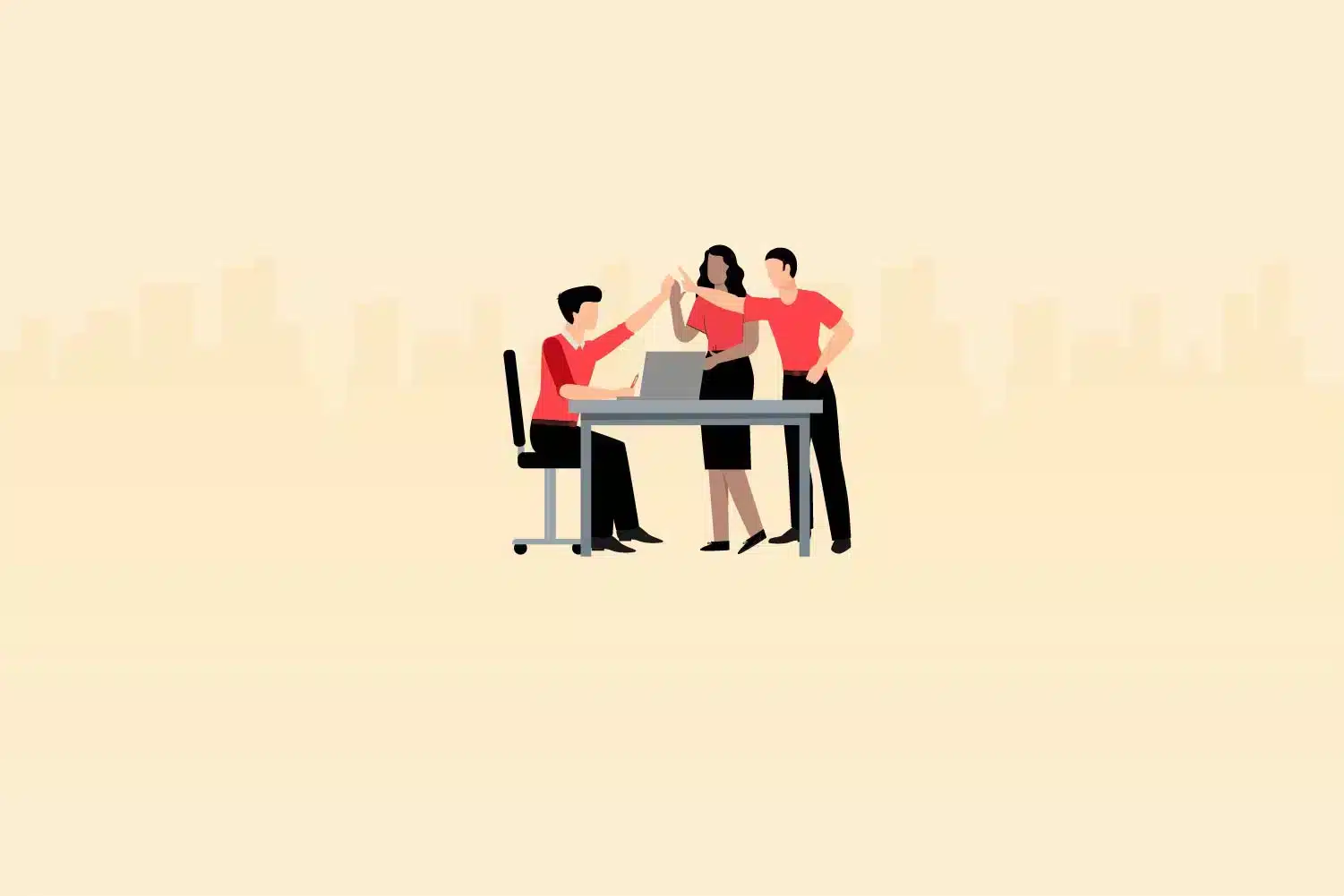You may find conducting a technical interview to be a difficult task, depending on your expertise as an efficient engineering manager, but they are an essential component of the recruiting process in the tech industry. This post will serve as a summary of all I’ve learned throughout my five years as a technical lead and during my several technical interviews for various engineering positions.
This could be the ideal reference for you if you’re new to the post of engineering manager or if you’re just anxious about the process of conducting technical interview questions.
Purpose of technical interview questions
To determine whether your technical expertise is sufficient for the job you’re applying for, technical interview questions are designed to test just that. Calls, online video chats, and in-person meetings are all viable options for technical interviews, however, this does vary from firm to organization. Interviews might last anything from an hour to a whole day, depending on the number of rounds. Throughout these periods, you will encounter a variety of technical interview questions designed to test your technical skills, as well as puzzles and problems that need you to solve them. You should be prepared to demonstrate in these interviews that you can complete the job duties and live up to the standards set by the organization.
Why are post interview evaluations important?
When looking to hire new employees, more and more businesses are turning to online evaluation tools and apps. This has two benefits: first, it reduces travel costs, which is always a plus. Second, because most applicants will have researched the firm before the interview, they will feel more connected to it.
To ensure a fair and successful recruiting process, it is vital to evaluate applicants following an interview. This can provide value that an interview alone cannot. Those responsible for making the hiring choice might employ a set of criteria provided by an evaluation procedure that occurs after the interview. The time and money spent on hiring will be cut in half as a result of the accelerated onboarding of a suitable individual.
General technical interview questions
If you are hiring for this position, you may use these technical interview questions and their examples of responses as a guide.
1. Which computer languages have you worked with the most?
This technical interview question is designed to gauge the candidate’s proficiency in programming languages and their technical abilities.
I have the greatest experience in Python, Java, and C++, as an example of a response. For data analysis, I’ve utilized Python; for backend system development, Java; and projects requiring top-notch speed, C++.
2. Describe the troubleshooting process you’d follow for a crashing program.
Answering these technical interview questions correctly will reveal how well a candidate thinks about and approaches problems and errors.
An example response would be: “To begin, I would go at the error logs to see where the problem occurred. After that, I’d use debugging tools and run tests to find the problem. The last thing I would do before deploying is change the code and test it extensively.
3. What is the best way to debug an application while it is running?
The candidate’s capacity to resolve difficulties in real time while preserving user experience is evaluated by this technical interview question.
In a development environment that is identical to the production system, I would utilize debugging tools that enable real-time monitoring and create breakpoints. In this approach, I can troubleshoot without impacting the end consumers.
4. Tell me what you know and what you want to know about your area of expertise.
The answer to this question provides insight into the candidate’s areas of expertise and their openness to new information.
Reply example: “While cloud computing is where my strengths lie, I’d love to expand my knowledge of machine learning and its many uses.”
5. Have you made substantial enhancements to an IT system? Please tell me what they were and how you put them into action.
This question probes the applicant’s background in implementing significant changes within an IT setting.
“Yes, I oversaw the team that moved our services to the cloud, which allowed us to scale more efficiently and save expenses significantly. We took great care with our planning and carried it out in stages to keep downtime to a minimum.
6. How can we best determine what the system and users need?
The candidate’s strategy for obtaining requirements, an essential part of every project plan, is assessed by this question.
“I often begin by conducting stakeholder interviews to have a better understanding of their requirements and expectations. Afterward, I evaluate the system’s capabilities by consulting with the technical team. A formal requirements definition is the last piece of documentation I use.
7. Describe a time you had to explain technical details to a non-technical audience. How did you modify your presentation?
In particular, this question looks at how well the applicant can convey complex ideas to others who aren’t technically savvy.
I once had to convince our board of directors of the merits of moving to the cloud by outlining the many advantages of doing so. I avoided using technical jargon in favor of more accessible language and analogies.
8. When evaluating someone else’s code, what aspects do you typically pay the most attention to?
You can tell a lot about a candidate’s code review abilities and priorities from their response to this question.
An example response would be: “I inspect the code for efficiency, readability, and compliance with best practices. Additionally, I search for security holes.
9. What did you find most challenging about this assignment? What resources did you use to complete the assignment?
The ability to think creatively and solve problems is tested by this question.
Answer example: “Improving the algorithm’s performance was the most difficult component. To find the obstacles, I looked into internet communities and employed profiling software.
10. What did you learn from [X] project?
Asking this question gives insight into the candidate’s learnings from past experiences.
Example response: I realized the value of comprehensive requirement gathering after working on the project. With more careful preparation beforehand, we could not have encountered these difficulties.
Advice for technical job interviews
Computing is a field that will never go out of style. Seek out applicants who take pleasure in staying up-to-date with industry news and education. Candidates who show genuine interest in their field by doing things like testing new software, going to coding meetings, and posting often on technical blogs and forums are worth hiring.
Candidates’ abilities are not revealed by brainteasers and trick questions. Give specifics. Before hiring someone, make sure you inquire about their familiarity with the software you use and how they would solve a problem similar to one that may occur on the job. You can compare candidates’ replies with these sorts of questions as well.
It might be tedious to answer too many theoretical inquiries (such as “Please tell me the definition of…”). In addition, they do not assess the candidate’s capacity to solve problems. Ask applicants questions about their conduct and how they handle real-life situations to gauge their performance on projects.
Appointments should begin with a phone interview and end with a written assignment. Make the applicants aware that they have a written assignment due and send them specific instructions via email. Be specific about when you need the project finished, and give them plenty of time.
Do not limit your evaluation of the assignment to the correct and incorrect answers alone. Evaluate the contestants’ thought processes. An original, creative approach (even if it has some flaws) might demonstrate the kind of thinking that is required of the position.
Factors to evaluate candidates’ interview answers
Here are some things to think about while you’re evaluating candidates:
1. Simplicity and concreteness
Certain persons in our lives can talk for hours on end. A possible warning sign during the interview would be if the applicant did this in response to your queries. If their response contains a great deal of superfluous details, the same principle applies.
2. Remaining focused
Going off on a sidetrack is one thing, but avoiding answering a question on purpose is quite another. This might happen unintentionally; if it does, attempt to ask a more targeted inquiry or redirect the discussion. Warning sign: The candidate still doesn’t appear willing or able to respond.
3. Mentality
Every response’s tone is important. Even if the question is valid, you should still think twice about hiring someone whose response is characterized by condescension or hubris.
4. Being genuine
Candidates can have similar answers to certain questions. Find the people that stand out by providing responses that are both original and truthful.
5. Being attentive
The most pertinent responses come from candidates who pay attention. A candidate’s inability to listen attentively may be shown if they frequently cut you off or fail to grasp the gravity of your inquiries.
6. Using examples
Candidates’ samples should be carefully considered for quality and detail. False or ambiguous examples could be exaggerated or even invented, while a complete absence of examples should raise red flags. To gain more clarity, ask follow-up questions.
7. Reliability
Another warning sign is if the candidate claims to have great communication abilities yet has trouble finishing their statements.
What does a good technical candidate look like?
The technical capabilities of a candidate are important, but they should also be able to solve problems, communicate well, and be open to new ideas and ways of doing things. They need to be sociable and able to fit in with the team dynamic.
Conclusion
When you take notes on pertinent information throughout the interview, you may find it simpler to recall each applicant and your experience with them. Instead of paraphrasing the interviewee word for word, make use of keywords to assist you recall essential ideas. You can include one or two pertinent keywords for each duty outlined by a candidate in their description of their prior job’s day-to-day operations. You may make specific sections of their CV stand out by making comments in the margins and highlighting or circling them.








